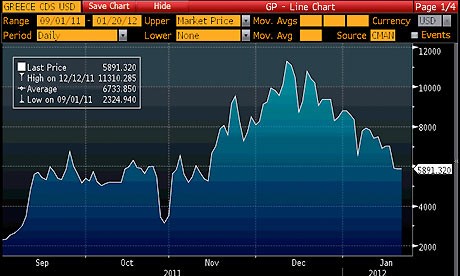Goldman and Greece What the Heck are Currency Swaps MarketBeat
Post on: 28 Апрель, 2015 No Comment

By Matt Phillips
We know that swarms of our adoring fans look to MarketBeat as a font of knowledge on the gears, pulleys, winches and hamster treadmills that make our global financial system shudder to life.
Guilty as charged.
And while we cant deny our almost preternatural understanding of international finance. we must admit that even we need some help from time to time.
For instance, we confess to being somewhat flummoxed by the role currency swaps seemed to be playing in the ongoing saga of Greeces wobbly financial condition. In todays Heard on the Street, the Journals Richard Barley writes that Europes official numbers crunching body has decided to ask Greece for more details on currency swaps it may have used to defer debt repayments, a move Barley says has reminded investors that all governments have huge long-term lurking liabilities not disclosed in their accounts.
The closest the Financial Times came to an explainer was this passage on Greece and the arranger of some of these transactions, Goldman Sachs: It is hard to deny that the Goldman deal did create an optical illusion. It involved some €5bn of currency swaps at off-market rates and its effect was to let Greece borrow money without recording it as part of its public liabilities.
Luckily we were able to track down Darrell Duffie, a Stanford University finance professor. who was kind enough to explain some of the basics of currency swaps, how they can be used to help hide national debt and why he thinks there are a lot more swaps out there waiting to surface. Heres a Q&A style, edited summary of our chat.
Q: F irst things first, what are currency swaps?
A: Theyre long-maturity, over-the-counter derivatives. That is theyre bilateral contracts in which parties to agree to exchange long-term streams of interest payments in different currencies.
Q: So if Im a country or a company, why would I want to enter into one of these agreements?
A: There are a lot of reasons. But one of the most common reasons is that you borrow money in another currency and youre concerned about foreign exchange fluctuations. So for instance if Im Greece, and I borrow dollars in the U.S. I have to pay that debt back in dollars. But say Im worried that the U.S. dollar might strengthen against the euro. That could add a lot to my debt burden. So I might prefer to repay the debt in euros. Currency swaps are a common way of doing that.
Q: Alright, so why is the fact that Greece may have entered into these agreements thought to be a problem.
A: Well for the most part, plain vanilla swaps just represent an ongoing agreement to exchange interest payments in the future, with no exchange of cash up front. But in other instances, the two sides of the deal agree that there will be an exchange of money up front to one party, who will would then pay that back with higher payouts in the future.
Q: That essentially sounds like a loan.
A: You could make that argument. But the thing is, these currency swaps had not been accounted for as loans on the books of the national government. In terms of incentives, the main incentive is that it gets accounted for in a different way that allows you to report a lower amount of debt on the national level.
Q: So the fact that Greece apparently had these sort of off-balance sheet loans is this a big deal?
A: Essentially, it raises a lot of questions as to how many banks and how many countries entered into these sorts of agreements. The general speculation is that some other sovereigns did this with a number of banks over many years.
So, essentially, it seems that the whole currency swaps issue comes down to an accounting game for governments. As the EU Observer points out (ht: ClusterStock ) that the eurozone is widening its inquiry into the use of currency swaps:
The Finnish politician said Eurostat had no evidence of other capitals using the swaps, but the statistics agency was also unaware of Athens activities until very recently.
Media reports over the weekend said Europes other chronic big spender, Italy, has also used the off-balance sheet items in the past to hide its debt pile.
Data Points: Europe Next
Data Points: Energy & Metals














